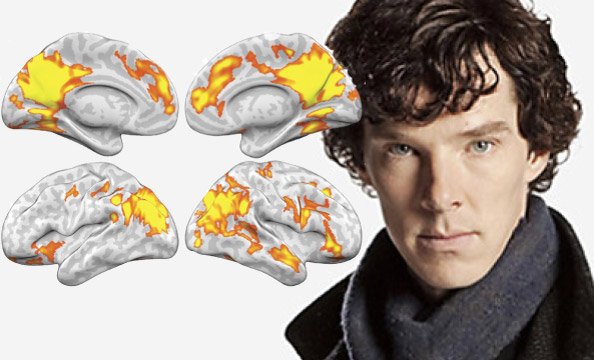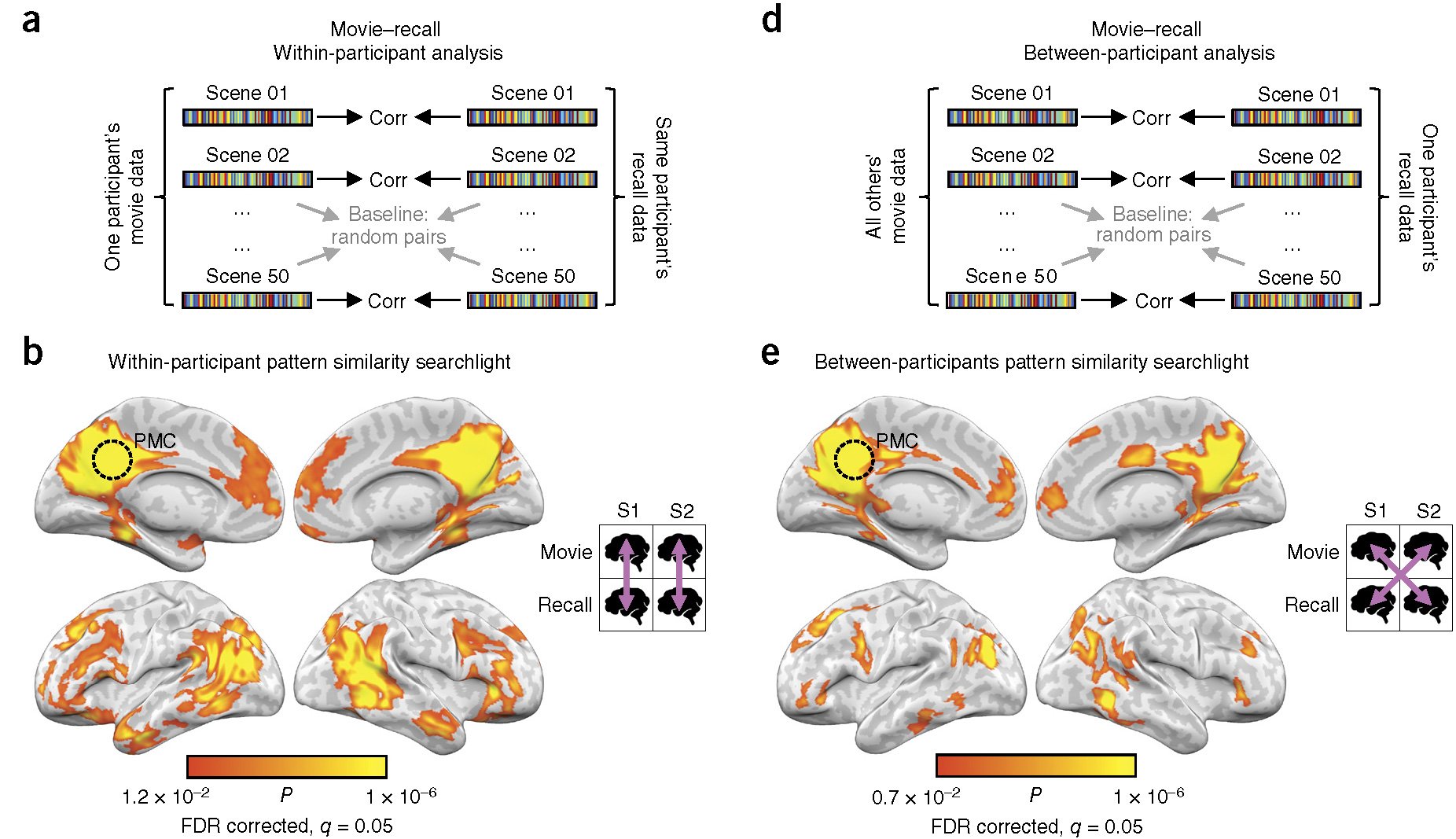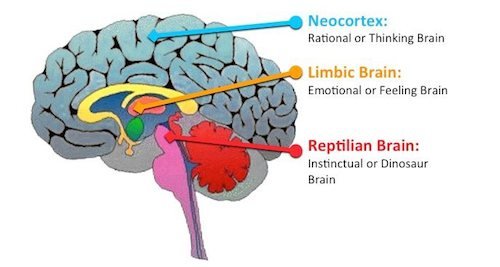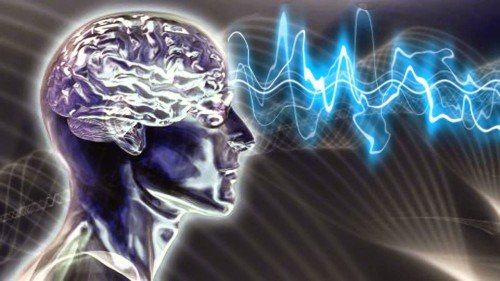Sherlock Holmes videos have been used to assist researchers in learning how shared experiences among various people are processed in the brain. There is a structural framework that is used in common for all humans.

Have you seen the "mind palace" in BBC's Sherlock Holmes?
Sherlock Holmes: Mind Palace (9s clip)
For Sherlock Holmes, as depicted by Benedict Cumberbatch, the mind is structured in such a way as to allow him to piece together relevant facts and associations pertaining to a case he is working on.
The mind palace is also known as the memory journey, memory palace, or the method of loci, a memory enhancement visualization technique to recall information quickly through spatial memory familiarity of objects within an environment or situation that requires inquiry.
The newly released research is interesting in helping us understand the mental and memory framework we all share in common as humans. And they used Sherlock Holmes to do it. How synchronous.

A paper published on December 5th in Nature's Neuroscience, titled "Shared memories reveal shared structure in neural activity across individuals", details how Janice Chen from Princeton University and Yuan Chang Leong from Stanford University, carried out research on 17 participants to learn how memory shares commonality among us all.
The experiment was to study the blood flood to the brain to measure brain activity with an fMRI, while participants watched 48-minutes of a Sherlock Holmes episodes, specifically "A Study in Pink".
Participants would then talk about their experience of the episode afterwards, while still being monitored by the fMRI.

Comparing the results of viewing the episode to recalling and discussing the episode, they corresponded in brain activity to match them up accurately. Each movie scene imprints a short-of distinct fingerprint in out memory.
Researchers then compared the activity between individual participants to develop an average pattern. Comparing each person's memory pattern to the average can show how much each individual diverges from the average pattern. If people are all having varied memory patterns, they will all diverge from the average pattern of data that represents watching the show.
The researchers found that the brain activity of individual perception was a close match to the group average pattern of perception.
All humans, being human, share the same basic bio-nature neural architecture. Scientists used to think this was mostly confined to the lower order aspects of the brain, like the limbic mammalian and R-complex base-brain parts of the brain. They thought the higher order neo-cortical areas were more individual and uniquely formed to provide our individuality. This is no longer the case.

Personally, I knew the human body was the same bio-nature construct, with minor variations, producing a universal underlying psychological framework for operation of consciousness. We do indeed have unique ego-personality-identity construct and degree of abilities. I have talked about this in some of my work.
The research not only found the shared brain patterns to be active in the higher order regions, but they were also exclusively found there. So much for the denial of hardcore "empiricists" who couldn't take the reality of psychological observation that showed a common functionality across human beings, even in higher order functionality like memory and thinking.

Despite individual memories being unique to each of us, if we are receiving the same information, from one singular perspective, like a screen, then we all have the same information being received and almost create identical memories. We share a lot in common when we share a common world.
The more the information is the same, the more our memories are the same. How we see and remember the world can be unique, but it can also be shared. Solipsism falls on it's head. It has previously been cast aside as a valid philosophical argument, and now reality keep pulling out more punches and taking down solipsism for the joke it is.
Even with individual memories not shared through a common environment or medium of information, like a movie, we are still all human. As such, memories overall share common organizational structures. Discovering more about how we recall similar events, and the accuracy of recall, may lead to developing techniques and technologies for earlier detection of Alzheimer's and other memory loss impairments.
If you have followed my work for a while, I've explained the power of consciousness, as it relates to word symbols and language, calling this the real magic in life to influence and manipulate people. The science of imagery is powerful. Well, the researchers confirm this is how things work:
“I would say that you implant your thoughts into another person’s brain quite easily, simply by telling them what you are thinking or remembering,” says Chen. “You remember it and, at the same time, they imagine it.”

Just by speaking, just by hearing, just by existing, we are constantly being influenced with all sensory inputs around us. Everything we read in a book, a newspaper, on TV or online, everything anyone ever tells us, can influence our behavior in that moment, what we think, what we say, what we do, or influence us into the future through subconscious and unconscious thoughts and imagery being summoned within us.
Being mindful of what we read, see, hear and think is required in life. Quality in, quality out. Garbage in, garbage out.
Are we asking ourselves, what are we inputting that becomes part of who we are and how we act? This applies both to food, and information. Heal the body, and heal the mind. Seek truth. Evolve consciousness.
References:
- Shared memories reveal shared structure in neural activity across individuals
- Your mind works more like Sherlock Holmes’s than you think
- Sherlock Holmes shows memories have a common fingerprint
Thank you for your time and attention! I appreciate the knowledge reaching more people. Take care. Peace.
If you appreciate and value the content, please consider:
@krnel
2016-12-06, 10:53am


